Learn how to completely and cleanly control your Apex code with Trigger Frameworks in Salesforce. Salesforce Trigger Frameworks are useful, and there are various ways to implement them. This session will talk about the Apex Trigger Framework in Salesforce and the benefits of using a trigger framework. How many Salesforce trigger frameworks are available? Which one is a lightweight apex trigger framework, and what is the comparison of different approaches?
What is Trigger Framework in Salesforce?
Triggers are a powerful tool that can do great things when used correctly but cause a lot of headaches when used incorrectly. Triggers without structure can be messy. They can interfere with one another and cause huge performance and debugging problems. A Trigger framework is a highly optimized, reusable structure that serves as a building block. Reusable Trigger frameworks increase the productivity of developers and are easy to modify.
Benefits of Trigger framework in Salesforce
There are many benefits to using the Trigger framework and Apex Design patterns.
- Generic code that can be extended for any object
- Ensures triggers are consistently handled and only required code is needed.
- Allows for simple Triggers and handlers.
- handles routing for you
- to enforce consistent trigger behavior
- Easily allows for trigger bypasses
- Allow you to enforce different behaviors for triggers that start a process vs. mid-process.
Type of Apex Trigger frameworks in Salesforce?
There are different trigger frameworks available in the market for Salesforce but in this post, we will talk about them.
- Trigger Handler Pattern
- Trigger Framework using a Virtual Class
- Trigger Framework using an Interface
- An architecture framework to handle triggers
#1 Trigger Handler Pattern
Please check this post to learn about the Trigger Handler pattern and code. Let’s talk about the advantages of the Trigger Handler pattern.
- Apex Class that handles trigger logic
- Allows code to be called from other code or tests
- Uses specific Trigger contexts and Trigger variables for routing
- Keep Triggers Simple
- Allow for greater flexibility
- Make code reusable
- Unit tests are much easier
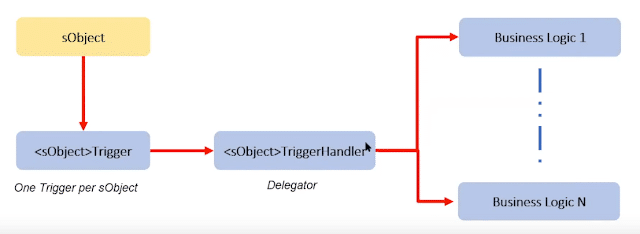
What is missing in the Handler pattern ?
- Still duplicated code in every trigger
- How can we simplify things?
- How can we make our process repeatable?
#2 Trigger Framework using a Virtual Class
Please check this post to learn more about the Virtual Class Trigger Framework. This trigger framework bundles a single TriggerHandler base class that you can inherit from in all of your trigger handlers. The base class includes context-specific methods that are automatically called when a trigger is executed
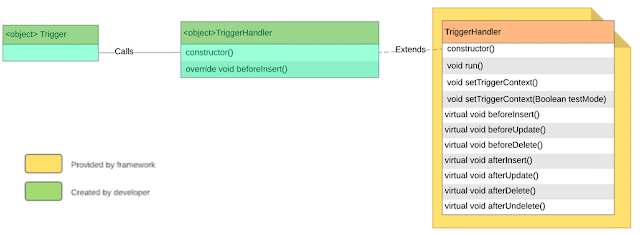
Accomplishments with this Trigger framework:-
- 1 line trigger
- Only need to add handler methods that we want to use
- All routing is handled for us
#3 Trigger Framework using an Interface
Please check this post to learn about this framework.
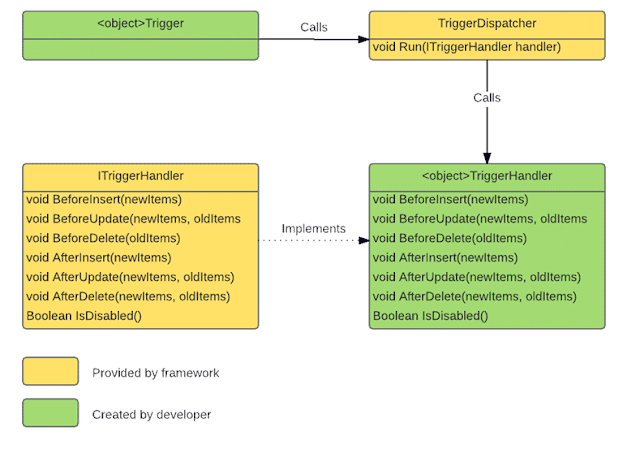
Accomplishments with this Trigger framework:
- 1 line trigger
- All routing is handled for us
- All handlers are consistent and will have the same methods
- Multiple ways to deactivate a trigger
#4 An architecture framework to handle triggers
Please check this post to learn about this framework.
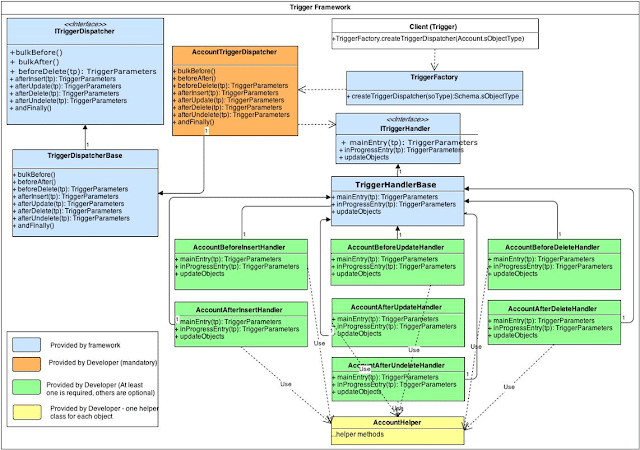
Accomplishments with this Trigger framework:-
- One line trigger
- All routing is handled for us
- Establish all methods while letting us pick and choose which ones we want
- Individual event handler methods
Trigger Actions Framework
Administrators use platform products like Flow to deliver powerful business processes, and developers can write Apex to handle more complicated scenarios. The biggest question for Salesforce architects has been how to arrange these tools together to build complete solutions. Check this post to learn about the Trigger Action framework in Salesforce.
Further Learning
Here is the link for all frameworks:-
- Trigger Frameworks and Apex Trigger Best Practices by Kevin O’Hara
- Trigger Pattern for Tidy, Streamlined, Bulkified Triggers by Tony Scott
- Hari Krishnan’s architecture framework
- Lightweight Apex Trigger Framework
If you are new to Salesforce, then check our FREE Developer training. Please subscribe our YouTube channel. Make sure to subscribe our YouTube channel to get a notification for video uploads.
Triggers Framework FAQ’s
There are different trigger frameworks available in the market for Salesforce but Most comman one are-
1. Trigger Handler Pattern
2. Trigger Framework using a Virtual Class
3. Trigger Framework using an Interface
4. An architecture framework to handle triggers
Apex Trigger handler pattern is simplest trigger pattern to handle trigger recursion and order of execution of different logic. With this you can create Apex Class that handles trigger logic. Allows code to be called from other code or tests. This pattern uses specific Trigger contexts and Trigger variables for routing.
1) One Trigger Per Object
2) Logic-less Triggers
3) Context-Specific Handler Methods
4) Bulkify your Code
5) Avoid SOQL Queries or DML statements inside FOR Loops
6) Using Collections, Streamlining Queries, and Efficient For Loops
7) Querying Large Data Sets
8) Use @future Appropriately
9) Avoid Hardcoding IDs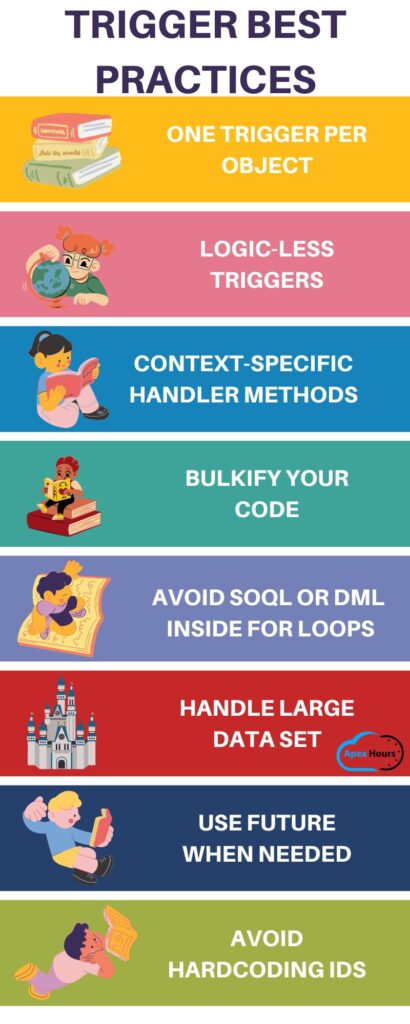
-Follow Trigger Best practices
-Avoid using next for loop.
-Use Asyn Apex when possible.
-Use map for better performance
Summary
There are multiple trigger frameworks are available in Salesforce. All of them are good and have some advantages and disadvantages. You can select any Salesforce Trigger Framework based on your organization’s size and client needs. Don’t forget to let us know which Salesforce Trigger Framework you like and use in your org.

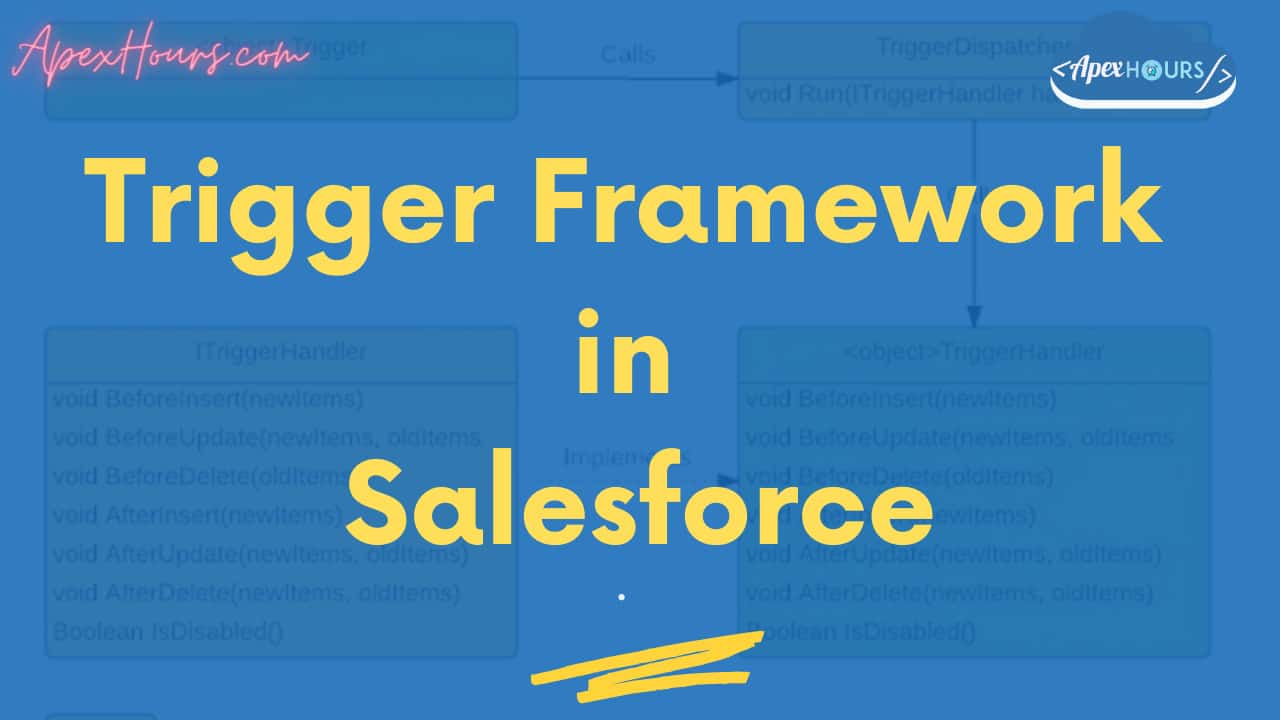

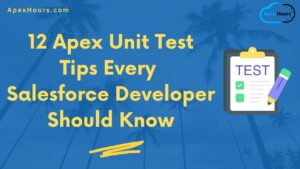

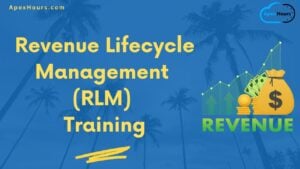
Please send me the notifications of new posts
Please subscribe our blog to get email notification from here https://www.apexhours.com/subscribe-us/
Dear Amit, Thanks for this wonderful effort for making trigger concept so easy. Could you please update the link to code for “Trigger framework using an interface” as it has some incorect path now.
Thank you so much. Glad you like our Trigger Frameworks post. We will update it soon
Hi All,
Firs of all, thank you so much for this blog, it’s really helpfull to me.
I’d like to view the code related with each framework. But, the link in the “Trigger framework using an interface” section send me to http://chrisaldridge.com/triggers/lightweight-apex-trigger-framework/. However, that page give the following error:
Forbidden
You don’t have permission to access /triggers/lightweight-apex-trigger-framework/ on this server.
Could you correct this please so I can access to the code?
Thanks in advance.
Regards,
Juan.
Here is link of Trigger framework using an interface
https://github.com/ChrisAldridge/Lightweight-Trigger-Framework
#3 Trigger Framework using an Interface
Please check this post to learn about this framework.
I cannot access this ->
http://chrisaldridge.com/triggers/lightweight-apex-trigger-framework/
may be Domain is expired please check .
Thanks
Hi Amit,
The given links are not working for:
#3 Trigger Framework using an Interface
#4 An architecture framework to handle triggers
Please share the links to access the code for better understanding.
Thank You!